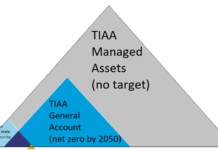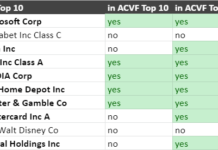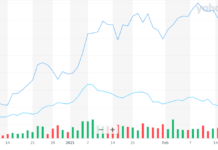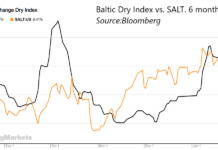by Garvin Jabusch
The first two weeks under the Trump administration have been a shock to the system. With the change in administration, how will you approach your stock portfolio(s)?
For starters, your fundamentals should remain unchanged. For me, that means looking for great companies in expanding markets that are enabling long-term economic growth, and reducing systemic risks. Of course, this also means buying these stocks at low valuations. Benjamin Graham and Warren Buffett were right about ‘wonderful companies at fair prices.’ That is never going to change.
With that said, let’s look at what has changed and what to do about it.
Unpredictability that’s the first quality worth noting about the new White House team’s leadership style. Trump’s comments and actions concerning topics such as open global trade, immigration and the US-China relationship will cause uncertainty, to which markets usually do not respond well. George Soros recently emphasized this point, adding, “Uncertainty is at a peak, and actually uncertainty is the enemy of long-term investment. I don’t think the markets are going to do very well.”
It is true that in the short time since Trump’s election, markets have rallied. Traders perceive that uncertainty has actually decreased because the election cycle is over, and they believe a Trump administration will benefit business by removing regulations. The possibility of fiscal stimulus via infrastructure something a Republican Congress never let Obama do has also rallied markets. But as we witnessed on 1/30 and will likely continue to see, uncertainty’s retreat will prove to be an illusion.
For example, markets have largely appeared to accept the positive business aspects of Trump’s rhetoric but equally, so far, to discount the negatives, such as the possibility of a trade war. Trump also promises to roll back financial oversight and regulations such as Dodd-Frank, which raises the specter of possible asset-bubble deflation, a la 2008. Good markets should not be confused with a stable investing environment.
Beyond Soros, other qualified observers, such as Eliot A. Cohen and Ruth Ben-Ghiat have noted that there is enough personal and political capriciousness swirling within this White House that the consequences could extend far beyond market implications. We should not make the mistake of not taking seriously the administration’s actions over its first two weeks.
So, portfolio defensiveness is clearly warranted. What that means for an individual investor’s portfolio, I leave to your best judgement.
Yet the inevitable market volatility will present opportunity, both in buying oversold securities as opportunities arise, and also in making investments that benefit from volatility itself.
Trump’s worldview often contradicts global momentum, and this can present buying opportunities. Energy policy is a prime example of this. The global transition away from fossil fuels toward renewable energies is now clearly underway. Nevertheless, the Trump administration’s attempts to prolong the fossil age a few more years may meet with some success. It is possible that gas and oil may be about to enter their last, large bull run. If this is the case, some investors may see this as a short-term opportunity, before the much bigger opportunity in being short fossil fuels indefinitely (or until it’s time to cover). For those looking to grow their portfolios beyond the next couple of years, a much larger opportunity appears companies that are trailblazing toward the interconnected, sustainable economy.
Trump’s actions also spell out the need for diversification in light of U.S. political risk. While Trump has removed all references to climate change from whitehouse.gov, approved the Keystone XL and DAPL pipelines, canceled all EPA grants, and caused the CDC to cancel its climate change and health conference, he can’t stop the global momentum of renewable energy (worth a post on its own stay tuned).
So, how does an investor respond? As a fund manager, this looks objectively to me like any other case of political risk in a given country, underscoring the importance of a diversified portfolio. Saudi Arabia has policies against beer? Vatican City has ethical restrictions on imports of contraceptive devices? Maybe place less weight on companies trying to sell those products into those markets. Obviously, these examples are extreme to the point of absurdity, but they illustrate my point about political risks and diversification, because both beer and condoms have huge markets in other geographical areas that can be exploited for investment return. My examples are also less than apt in that there is today a booming market in the U.S. for both wind and solar but, considering both the words and actions of Trump and his administration, it seems only prudent to capitalize on renewable energies’ opportunities in companies with large global distribution networks and thus are not overly reliant on U.S. distribution. Canadian Solar (CSIQ), Vestas Wind Systems (VWDRY), and JinkoSolar (JKS) come to mind. Renewable energies worldwide are booming, and if the U.S. chooses not to participate fully in these industries, at least our portfolios can.
There may be opportunities in renewable infrastructure under Trump’s watch, as he pushes to develop transmission capacity from windy middle America to the coasts.
We are now, as much as at any time in recent memory, embarking upon an uncertain landscape, both culturally and economically. More than ever, investing requires a long view into how the economy is most likely to evolve, regardless of short- and medium-term gyrations, wild and scary as those may become.
In short, that means figuring out what’s next. What’s next in energy? In tech? In consumer goods? The way to earn returns over the long term entails investing in firms that are leading the way to the future, holding and accumulating shares through volatility, and looking for value.
Note: A version of this post appeared previously on Worth.com.
Garvin Jabusch is
cofounder and chief investment officer of Green Alpha® Advisors, LLC. He is co-manager of the Shelton Green Alpha Fund (NEXTX), of the Green Alpha Next Economy Index, the Green Alpha Growth & Income Portfolio, and of the Sierra Club Green Alpha Portfolio. He also authors the Sierra Club’s green economics blog, “Green Alpha’s Next Economy.”








